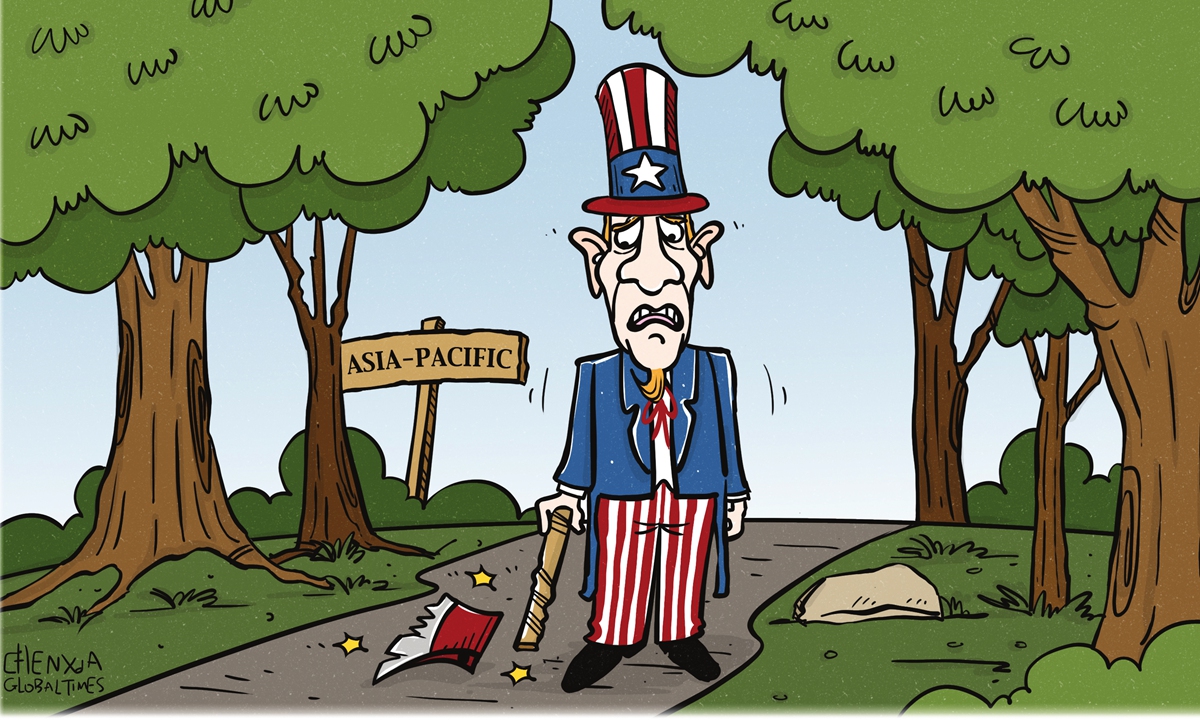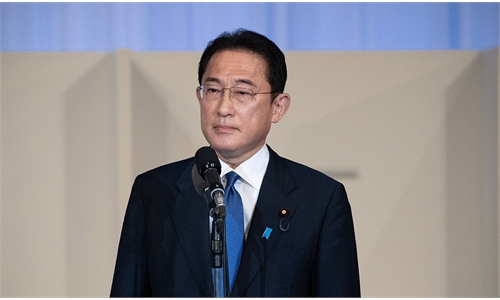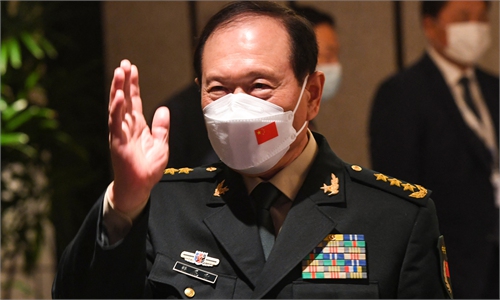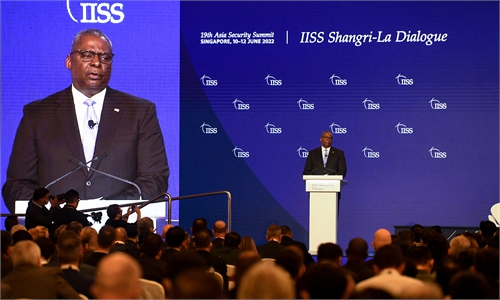
Illustration: Chen Xia/GT
After their meeting on Friday, US Secretary of Defense Lloyd Austin and Chinese State Councilor and Defense Minister Wei Fenghe respectively delivered a speech about the defense strategy of each country over the weekend at the 19th Shangri-La Dialogue in Singapore. Their remarks demonstrate the utterly different approaches of the world's two great powers in dealing with regional security and global order issues.Whether in its national or international security concept, the primary consideration of Washington is about the golden rule of "America First" - in other words, America's core interest concerns how to maintain its global hegemony.
In contrast, China's core interests lie in not only safeguarding its own sovereignty, security and development, but also maintaining regional and global peace and stability. Therefore, China is shaping international security with the idea of building a community with a shared future for mankind through its national and global security concepts.
While China's views on order and security embody international justice, the US focuses solely on its own interests, which override, in Washington's eyes, that of all other countries: China, Russia, and even its own allies and partners. In short, how the US interprets the security and order concepts is selfish, hegemonic and ultimately untenable.
In his speech on Saturday, Austin emphasized one word: partnerships. "… today, I want to talk about what that [the power of partnership] has meant in action, about how our partnerships have grown even stronger, and about how we've moved together toward our shared vision for the region," he noted.
Austin's remarks are highly deceptive, as they elaborately package what the US thinks is for the good of all regional nations as a "shared vision." Washington believes Beijing and Moscow are posing threats to its hegemony in Asia-Pacific and Europe, respectively, so the US hopes to suppress China and Russia by uniting its allies and partners. But for those countries, serving US hegemonic interests doesn't equal to peace and security. Instead, it actually undermines their interests to many extents.
The US is constantly hyping China as a "coercive and aggressive" force in the region. Even though China has been insisting that its defense policy is defensive and that it seeks a peaceful rise, Austin still accused China of using its advantaged military power to challenge regional security and bully smaller nations.
Washington wants to portray China as a direct and real threat to all the allies and partners it wants to rope in. However, when the US sets China as a target for attacks, the former has also woven lie after lie to justify the intention to safeguard its global hegemony. Once those lies are exposed, the US and its "friends" will only separate ways sooner and later.
But Washington's lies barely have any appeal to states in the Asia-Pacific region. To put it bluntly, only few regional countries, such as Australia, Canada and Japan, are willing to follow the US closely. Others rather regard ties with Beijing as an important opportunity for development.
The US is gradually losing its ability to make rules in many areas, including regional security, international order, and economy and trade. And such a trend has occurred not only in the Asia-Pacific region, but also all around the world.
On the one hand, the US is losing its credibility for what it has done to other nations. On the other hand, the country's economic influence is slowly diminishing, as the dollar hegemony is ending due to an excessive usage of sanctions. In the end, the US will lose its hegemonic position.
The ongoing Ukraine crisis was also a key issue addressed at the Shangri-La Dialogue. There have been voices worrying about whether the conflict will spill over to the Asia-Pacific region. In my opinion, the answer is no, because the history and reality of Europe and Asia are entirely different.
Some countries in Europe are willing to act against Russia under Washington's incitement proactively. However, many Asia-Pacific countries view China as a friend and reliable economic partner, so for them, treating China as an enemy is impossible, let alone participating in an anti-China alliance.
The author is a Chinese military expert and TV commentator. opinion@globaltimes.com.cn



